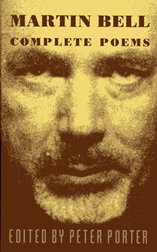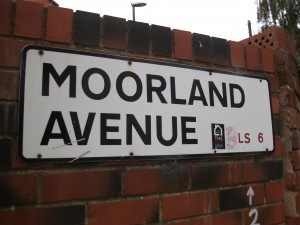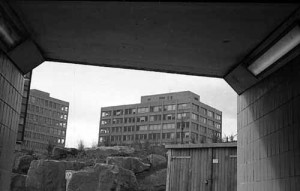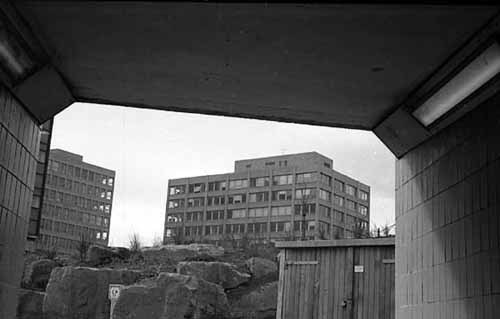Forgotten Leeds – a mini-series of short introductions to three little-known figures connected to Leeds by birth and/or their work here in the city – part three:
Martin Bell (1918-1978) – the forgotten poet:

Originally from Hampshire, Bell had served in the Second World War and was an established poet when he arrived in Leeds in the late sixties, having been included in Penguin’s Modern Poets Series (vol. 3 in 1962). In his earlier career, Bell had been a major figure in The Group, a loose collective of London-based poets who met regularly for around a decade from the mid-1950s. He also became acquainted with Anthony Burgess during that time; as Matthew Whittle relates in ‘The true literary experience’, the two bonded over a shared love of alcohol and verse, keeping in contact by letter when Bell moved to Leeds. Their friendship was recollected in Burgess’s memoir, You’ve Had Your Time, in which he described Bell as “doomed to die of drink and be posthumously neglected.”
Bell came to Leeds to take up a position as Gregory Fellow in Poetry at the University, a post he held between 1967-69, simultaneously working part-time at Leeds College of Art, and later becoming ‘poet in residence’ when the College was incorporated into the Polytechnic’s Department of Fine Art. The latter post involved nominal teaching duties, but served primarily as a beneficial influence on the cultural environment, indicative of more liberal times in the arts. Bell’s fellow staff in the (occasionally infamous) Department included Jeff Nuttall, author of the notable 1960s counter-cultural text Bomb Culture, and artist Willy Tirr. Among the students who passed through Fine Art during the 1970s were Green Gartside, founder of the band Scritti Politti, and Marc Almond, whose first group Soft Cell were formed in Leeds.
Bell lived on Moorland Avenue, close to the University, and died in Leeds in 1978. Though by all accounts his feelings about the city were ambiguous at best, he is fondly remembered by those who knew him. Always a keen pub-goer, alcohol increasingly took its toll on his health over the years. A well-read if unorthodox figure, an authority on French surrealist poetry (of which he was also an accomplished translator), he conducted informal seminars in the Fenton pub, inspiring students such as George Szirtes and Will Barton in their subsequent poetic and artistic careers: Szirtes, choosing Bell’s Collected Poems for the ‘Book of a Lifetime’ feature in The Independent (February 2013), stated that “there hasn’t been anyone like Bell since.” He later acknowledged the influence that Bell had had on his own poetic development, describing him as “a good and kind teacher” and “very important to me, the first real poet in my life”. Barry Tebb, another Leeds Polytechnic graduate, praised not only Bell’s poetic gifts but also his generosity and humility; he recalls “the poet, hunched over his beer, chain-smoking, talking about poetry, always and most intensely talking about poetry…”

With little or no interest in publishing or promoting his work – it was only the Collected Poems volume cited by Szirtes that was published during his lifetime – Bell himself seems to have gradually abandoned the notion of making any active attempt to further his own career. He thus remained outside the literary establishment over the last years of his life, apparently coming to feel resentful at what he saw as his exile in Leeds. These various experiences of Bell’s adopted home ‘inspired’ one of his most accomplished and memorable poems – the ‘City of Dreadful Something’, found in the posthumously published 1988 collection of his Complete Poems – in which he bemoans everything from the “perpetual winter here in Leeds”, to “ the brute new building called Polytechnic… noise drilling banging grinding throbbing that follows you from room to room”, singles out “the Merrion Centre with its special subways for mugging”, before emphatically concluding that “Leeds is Hell.”

You can read Forgotten Leeds 1, Joash Woodrow here and Forgotten Leeds 2, John Wainwright here

